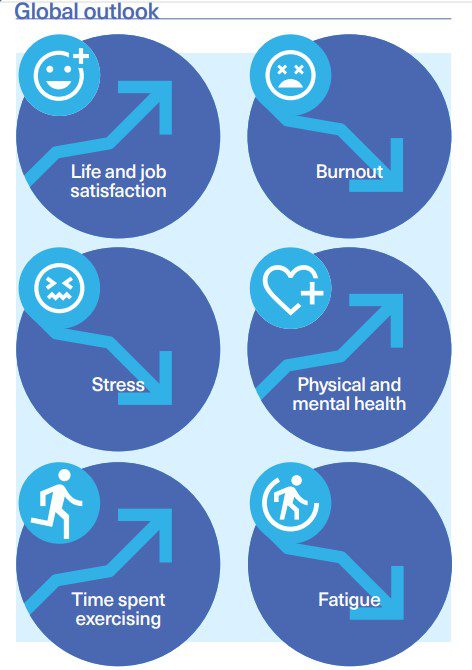4-day week: 92% of employers reap business benefits
Could it solve the Great Resignation?
Why You Should Care
Employees want flexibility at work.
This isn't just working from home, but also flexibility about hours, including the four-day week.
Find out the benefits of the four-day week for your business.
The COVID-19 pandemic has accelerated conversations about remote work. But working from home is not the only form of flexibility that employees are looking for, they also want flexibility about their hours.
In this context, there is growing demand for asynchronous working and a four-day week.
Research by Qualtrics found that 90% of 1,000 British workers would support their employer in implementing a four-day week. Further to this, 83% thought the four-day week could help their employer attract new talent.
Another 83% thought only working four days a week would improve their mental health, while 84% said it would drive productivity.
These employee predictions are playing out in reality, according to a global pilot organized by campaign group 4 Day Week Global.
The benefits for productivity, retention and business outcomes
Back in November, 4 Day Week Global published findings from 70 companies and 3,000 workers from the US and Ireland . But now it has added the UK results, bringing the total number of companies who have participated in a six-month pilot to 91.

Credit: 4 Day Week Global.
The results are very positive. 92% of organizations said they were continuing a four-day week – only five companies said they weren’t going to continue, and two of those were extending the trial.
Companies ranked the overall experience as 8.3 out of 10, and 7.5 out of 10 for business performance and productivity.
They also reported that their revenue rose 1.4% on average over the trial period – and when compared to previous years, the revenue gain from the four-day week was 35%.
The pilot found that attrition fell 57%, and no employees surveyed said they didn’t want to continue with the pilot – this was because of the wellbeing, productivity and work-life balance gains.
Talking about the results, Indeed Hiring Lab’s UK economist Jack Kennedy: “That 15% of employees who took part in the four-day week pilot said no amount of money would persuade them to accept a five-day schedule, suggests a trend where staff are placing a greater emphasis on work-life balance over more traditional incentives like pay, despite the cost-of-living crisis.
“This indicates a valuable opportunity for employers to examine their remuneration packages, build flexibility into their offerings and become more enticing to jobseekers without necessarily having to offer significantly higher wages.”
Given the benefits for attrition, could the four-day week be a solution to the Great Resignation?
The International Festival of HR is back! Discover amazing speakers at UNLEASH America on 26-27 April 2023.
Sign up to the UNLEASH Newsletter
Get the Editor’s picks of the week delivered straight to your inbox!

Chief Reporter, UNLEASH
Allie is an award-winning business journalist and can be reached at alexandra@unleash.ai.
Contact Us
"*" indicates required fields
Partner with UNLEASH
"*" indicates required fields